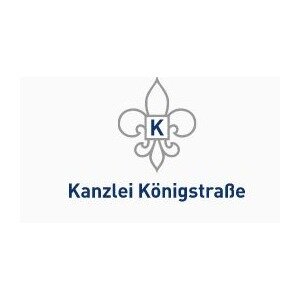Best Business Registration Lawyers in Germany
Share your needs with us, get contacted by law firms.
Free. Takes 2 min.
Or refine your search by selecting a city:
List of the best lawyers in Germany
About Business Registration Law in Germany
Business registration in Germany is a critical first step for anyone looking to start a business. The process ensures that businesses abide by the appropriate legal requirements, thus offering protection to businesses and consumers alike. The primary regulatory framework governing business registration is largely uniform across the country, providing guidelines and ensuring compliance with national and European Union laws. Depending on the type of business entity being established-such as a sole proprietorship, partnership, or corporation-specific requirements and formalities may vary. Overall, this process helps control transparency, tax obligations, and commercial activity legality.
Why You May Need a Lawyer
While it's possible to register a business in Germany independently, seeking legal assistance can be significantly beneficial for several reasons. Firstly, understanding the nuances of the business registration landscape, including local nuances and the requirements for specific business types, can be challenging. Lawyers with expertise in business registration can offer critical insights and advice, helping to avoid common pitfalls. Additionally, if your business involves international transactions or complex structures, legal help becomes almost indispensable. Conflicts with partners, unclear legal terms, and drafting of contracts may also necessitate experienced legal aid to ensure that all agreements are fair and clearly articulated.
Local Laws Overview
Germany's business registration laws are primarily dictated by the German Commercial Code (Handelsgesetzbuch, HGB), the Civil Code (Bürgerliches Gesetzbuch, BGB), and the respective trade laws applicable in the region of operation. Under these codes, businesses must adhere to specific naming conventions, liability requirements, and disclosure obligations. A significant aspect of business registration in Germany revolves around the Trade Licensing Office (Gewerbeamt), where most types of businesses are required to register. Furthermore, businesses must also register with the local Chamber of Commerce (Industrie- und Handelskammer or IHK) and the Tax Office (Finanzamt). Understanding the legal framework and the requirement for various permits and licenses, which differ according to business nature and location, is crucial.
Frequently Asked Questions
What types of businesses require registration in Germany?
Most businesses, including sole proprietorships, partnerships, and corporations, need to register with the Trade Licensing Office in Germany. However, freelance professionals, with certain exceptions, are an exception.
How long does it take to register a business in Germany?
The business registration process typically takes one to two weeks if all necessary documents are in order. Processing times can vary, especially for more complex business structures.
What documents are needed to register a business?
Documents generally required include a completed registration form, proof of identity, certificate of qualification or professional standing, and, where applicable, a business address.
Is it mandatory to have a German business bank account?
Yes, for most business types, especially corporations, it is necessary to have a German business bank account to handle transactions and comply with tax regulations.
Are non-EU nationals allowed to register a business in Germany?
Yes, non-EU nationals can register a business in Germany; however, they may need a residence or work permit to engage in commercial activities.
Can someone register a business online in Germany?
Partial online registration is possible for certain aspects of business registration, but other elements require in-person presence or notarial validation, especially for businesses like GmbHs or AGs.
What are the costs associated with business registration?
Registration costs can vary depending on the business type and location, typically between €20 to several hundred euros for notary services and entry in the Commercial Register.
What business structure is most suitable for a small business?
For small businesses, particularly those seeking limited liability, a Limited Liability Company (Gesellschaft mit beschränkter Haftung, GmbH) is often recommended due to its flexibility and protection.
Are there tax implications immediately after registration?
Upon registration, businesses are required to submit a tax registration form to the relevant Tax Office, and they may become liable for business taxes, VAT, and other applicable taxes.
Is it necessary to consult with legal professionals after registration?
It can be beneficial to continue consulting with legal professionals for contract negotiations, compliance audits, and navigating any legal changes affecting business operations.
Additional Resources
For further assistance, consider resources such as the German Chamber of Industry and Commerce (DIHK), local Trade Licensing Offices (Gewerbeamt), and the Federal Ministry for Economic Affairs and Energy (BMWi). These organizations offer valuable information and guidance on business registration processes and compliance requirements in Germany.
Next Steps
If you require legal assistance for business registration, consider reaching out to a legal professional specializing in German commercial law. Such experts can offer consultations to assess your specific needs, guide you through the registration process, and ensure that all legal and regulatory obligations are met. You may search for lawyers through local bar associations or professional networks and arrange for initial consultations to discuss your requirements, potential costs, and timelines for the registration process.
Lawzana helps you find the best lawyers and law firms in Germany through a curated and pre-screened list of qualified legal professionals. Our platform offers rankings and detailed profiles of attorneys and law firms, allowing you to compare based on practice areas, including Business Registration, experience, and client feedback.
Each profile includes a description of the firm's areas of practice, client reviews, team members and partners, year of establishment, spoken languages, office locations, contact information, social media presence, and any published articles or resources. Most firms on our platform speak English and are experienced in both local and international legal matters.
Get a quote from top-rated law firms in Germany — quickly, securely, and without unnecessary hassle.
Disclaimer:
The information provided on this page is for general informational purposes only and does not constitute legal advice. While we strive to ensure the accuracy and relevance of the content, legal information may change over time, and interpretations of the law can vary. You should always consult with a qualified legal professional for advice specific to your situation.
We disclaim all liability for actions taken or not taken based on the content of this page. If you believe any information is incorrect or outdated, please contact us, and we will review and update it where appropriate.
Browse business registration law firms by city in Germany
Refine your search by selecting a city.















